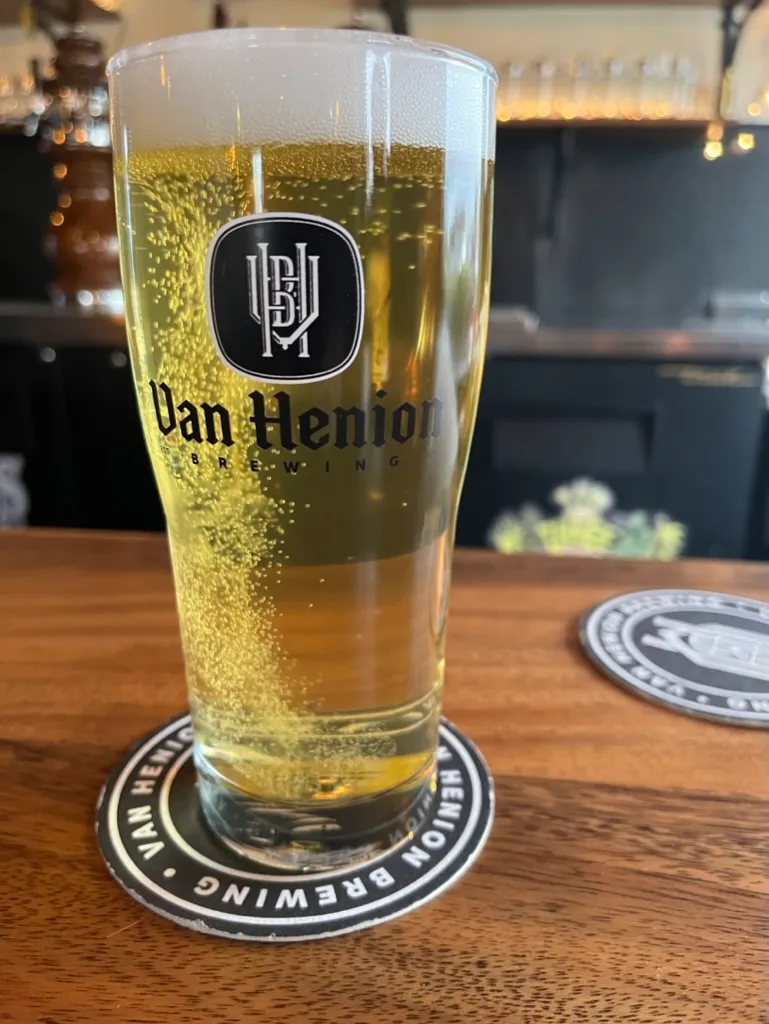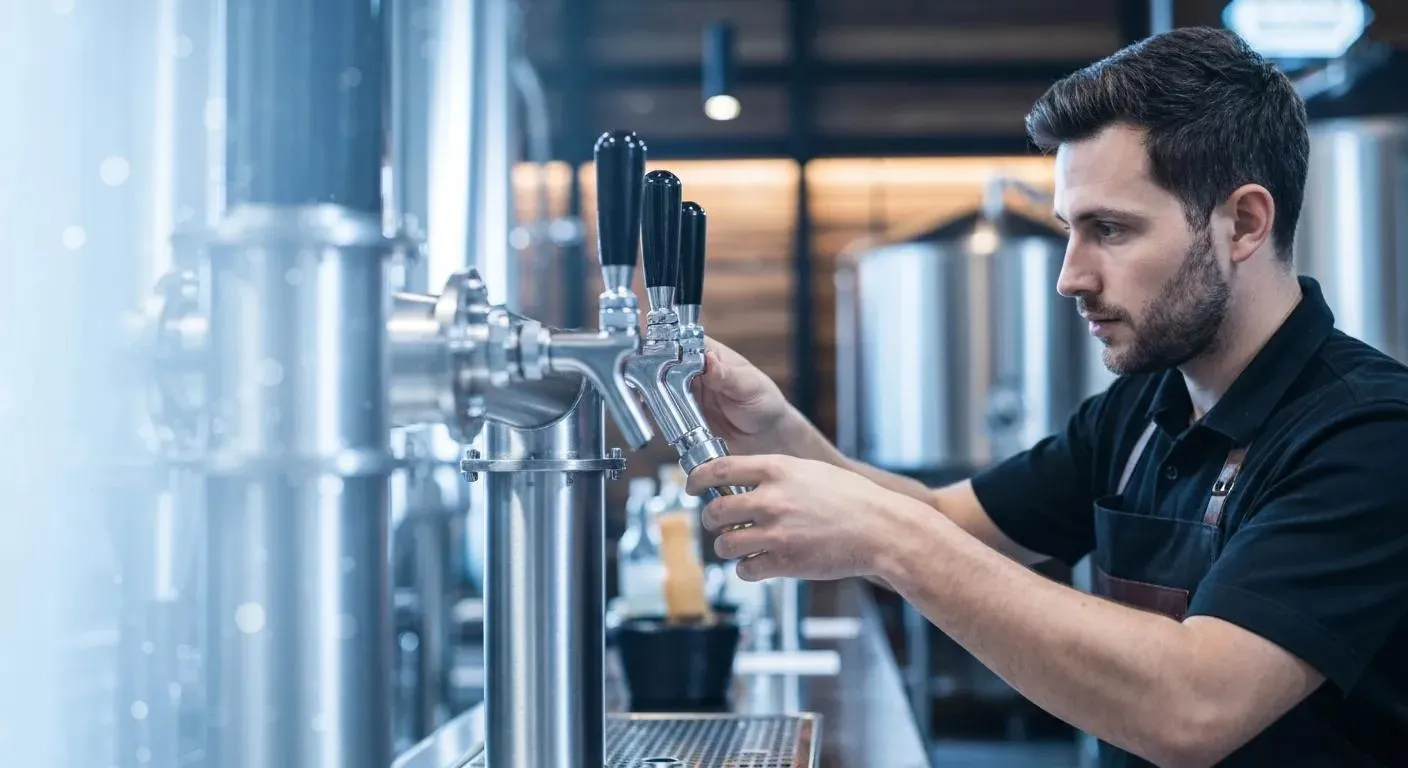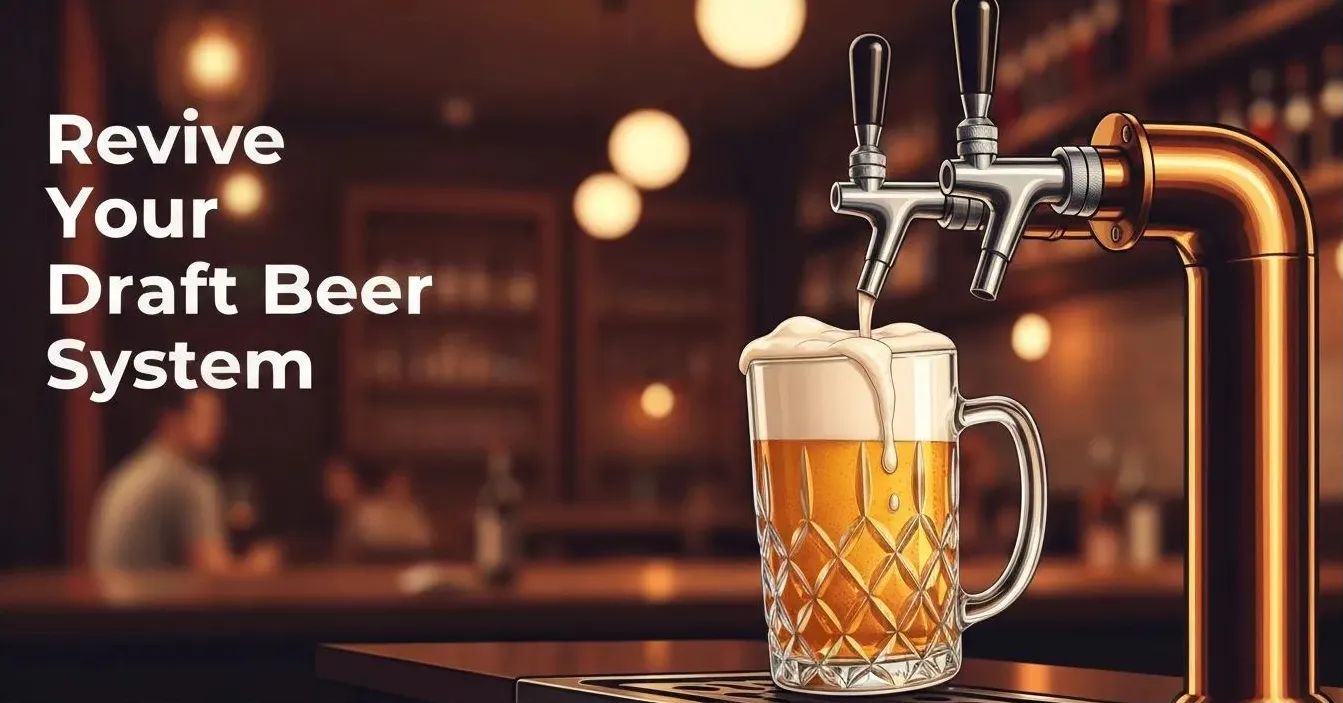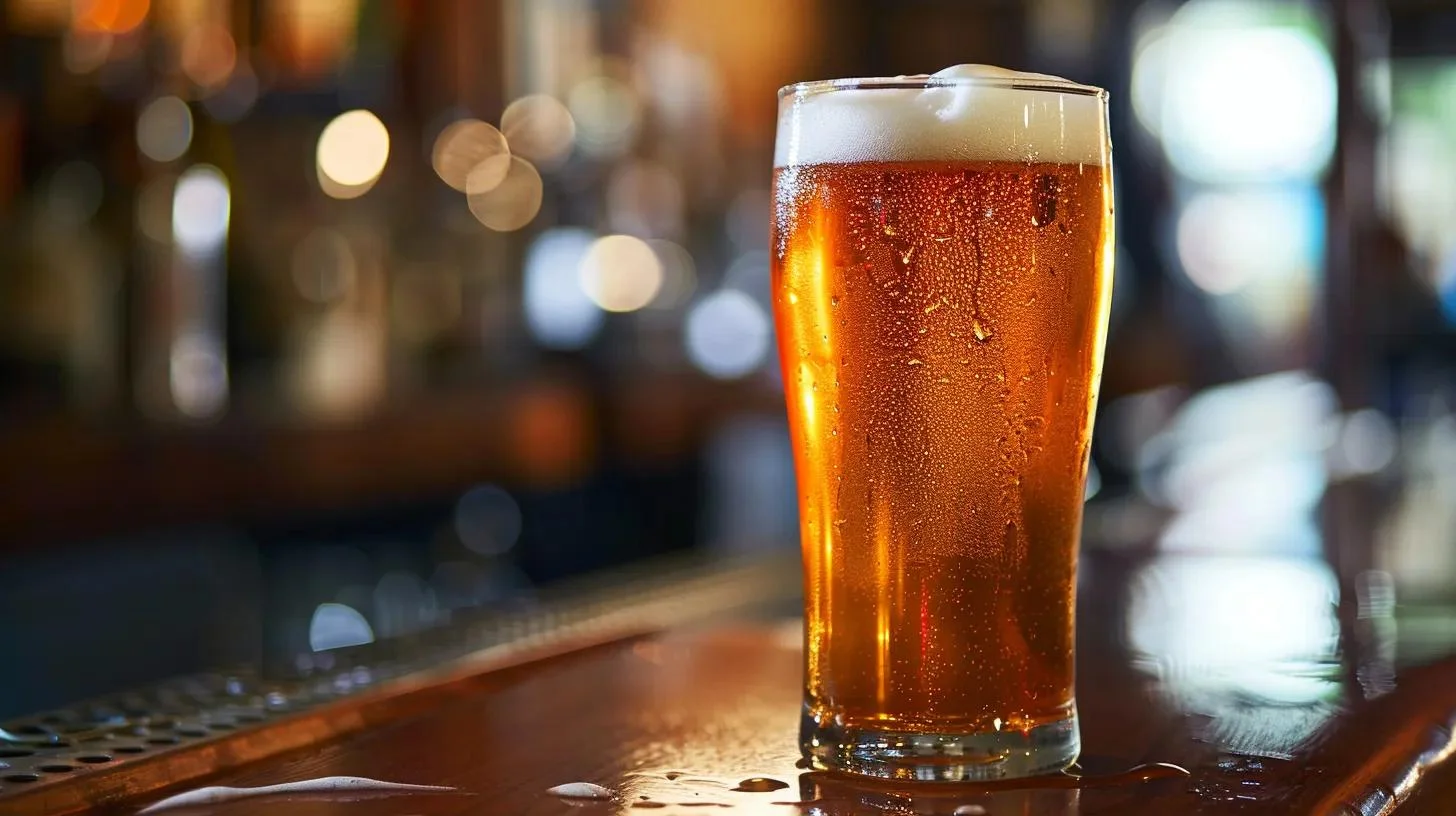Draft Beer Service & Profitability: Maximizing Earnings in Your Bar Business

Profit Potential from Draft Beer Draft beer sales can significantly enhance an establishment's revenue. A typical 15.5-gallon keg contains about 1,984 ounces, which can yield about 111-124 servings of 16-ounce pints.
Given the retail price and cost of goods sold, one can see a gross profit between $667 to $720 from a single keg. Calculations of net gain consider the keg's initial wholesale cost, indicating a profit range of approximately $467 to $520 per keg.

Annual Gains from Consistent Sales Bars Sports bars or restaurants selling an average of five kegs weekly might see annual profits surpassing $128,000.
- Weekly Keg Sales: 5 kegs
- Annual Calculation: 5 kegs x 52 weeks = 260 kegs
- Profit Estimate: 260 kegs x Average Profit = $128,180 annually
Understanding Profit Margin Profit margin is derived by dividing the gross profit by the selling price. For example, a 79% margin means earning $0.79 for every dollar in sales.
Conversely, pour cost is the inverse of gross profit, highlighted by a 21% pour cost in this context, equating to $0.21 spent for every dollar.
Critical Role of Glassware Profit margins can be optimized by the strategic choice of glassware which can impact the number of servings per keg.
Optimizing the Dispensing System To safeguard and maximize profit margins, you need a well-balanced, expertly installed, and meticulously maintained draft beer system.
Importance of Professional Draft Beer Services
Renny's Draft Solutions specializes in providing custom draft system installations and maintenance services for a wide range of businesses, including breweries, bars, casinos, and stadiums. Their expertise lies in ensuring a perfect pour every time for beer, wine, and cold brew. The company offers tailored installations that meet the specific needs of its clients, ensuring that each setup delivers the best possible beverage experience. Beyond the installation process, Renny's Draft Solutions is dedicated to maintaining the quality of these draft beer systems through professional cleaning services. This commitment to quality ensures that every pour from their installed systems is fresh, flavorful, and up to the highest standards.

What sets Renny's apart as the best in Oregon, is not just their comprehensive range of services but also their deep roots in the local beer industry. The founders, Brandt and Kyle, have extensive experience in the craft beer sector, with backgrounds working for prominent breweries in Bend. Their expertise and passion for the craft have enabled them to design and build unique, high-quality draft systems that are not only functional but also enhance the beverage experience.
Furthermore, their "Brewer Approved" distinction, awarded to establishments that maintain clean beer lines, and their commitment to a maximized keg yield guarantee, underscore their dedication to excellence. This local expertise, combined with their team and proven track record of optimizing draft systems to operate at peak efficiency.

Training and Quality Control
Proper education on system usage practices and cleaning protocols is vital for maintaining beer quality and, by extension, an establishment’s reputation.
Investing in high-quality equipment, like those provided by industry leaders such as Micro Matic, who have been in the market for over six decades, can help customers maintain consistent quality.
These suppliers provide comprehensive solutions, including advanced draft system technologies, professional training, and installation services.
Advancing Technology and Equipment
Utilizing advanced technologies like gas blenders, secondary regulator panels, and glycol chillers can improve the product carbonation and flavor, thus enhancing the customer's beer-drinking experience.
High-grade steel, such as 304-grade stainless, is recommended for contact with the beer to prevent corrosion and bacteria buildup.
System Maintenance
To create and maintain profitability, retailers should employ certified installers who understand the intricacies of draft beer systems.
Routine tap system cleaning is crucial to prevent bacteria and flavor taints. Operational components such as the FOB (foam on beer) detector, glycol chillers, trunk lines, Kool-Rite™ towers, and glass rinsers play an intricate role in maintaining draft beer quality.

Economic Efficiency and Profit Calculators
Tools like the Draft Beer Profit Calculator can guide establishments to understand their cost-to-profit ratios and make informed decisions on retail pricing to achieve desired margins. Also, bringing to light how efficient or inefficient a draft beer system is.
Common Questions on Draft Beer Profit Margins
Calculating Profit Margins for Draft Beer
To calculate draft beer profit margins, you should split the total cost of the draft beer line cleaning up from the selling price and divide that number by the selling price.
Multiply the result by 100 to get a percentage. Use tools such as a beer profit calculator to simplify this process.
Components Affecting A Draft System Costs
Several elements contribute to the initial cost of setting up a draft beer system, including:
- Refrigeration units
- Kegs and couplers
- Faucets and beer lines
- Gas components like CO2 or nitrogen tanks
- Regular maintenance requirements
Routine Operational Costs of Serving Draft Beer
Typical expenses in offering draft beer include:
- Cost of the beer itself
- Line cleaning and maintenance
- Waste management
- Energy for refrigeration
- Staff training and labor

Pricing Bottled Beer vs. Draft Beer
When pricing bottled beer in comparison to draft, consider:
- Perceived value differences
- Shelf life and storage costs
- Packaging and branding influence on price
Maintaining Draft Beer System While Cutting Costs
Establishments can cut costs without sacrificing quality through:
- Regular maintenance to prevent waste
- Buying kegs in bulk for cost savings
- Trained staff to minimize over-pouring and spills
Overview of Draft Beer Profitability

Draft beer systems can represent a lucrative aspect of a bar or restaurant's offerings due to their popular appeal and the tradition of keg dispensing.
Ensuring that these systems are efficient and well-managed is crucial to maximizing profit margins.
To comprehend the mechanics behind the profits gleaned from draft beer, one must consider a variety of factors that contribute to its financial success.
Key Factors
- Purchasing and Price Point: Bars procure kegs at wholesale prices and determine the retail price of a pint. This difference represents the potential gross profit.
- Keg Sizes and Beer Quantity: A standard 15.5-gallon keg holds approximately 1,984 ounces of beer, equating to around 124 pints if poured perfectly—which is rarely the case due to foam and spillage.
- Pour Cost Calculation: To determine profitability, bars calculate the pour cost percentage by dividing the cost of goods (the price paid for the beer) by the sales price.
- Optimal Pouring and Waste Management: Proper training and equipment maintenance can minimize waste, ensuring that the maximum number of pints is sold from each keg.
- Market Pricing: The retail price of draft beer must be competitive yet profitable, often correlating with the beer's brand, type, and local market conditions.
Profit Calculation Example
Given: Keg Purchase Price - $100
Price per Pint - $5
Number of Ounces per Keg - 1,984
- Total Possible Sales: 1,984 oz / 16 oz per pint = 124 pints
- Total Revenue: 124 pints x $5 = $620
- Pour Cost Percentage: $100 keg cost / $620 total revenue = ~16.13%
Maximizing Returns
Bars employ Draft Beer Profit Calculators to aid in pricing and profit maximization. They must also gauge Draft Beer Profitability to consistently yield a profitable outcome from each keg.
Additionally, understanding the Calculating Pour Cost is vital for bar owners to maintain their bottom line. Lastly, resources like the Draft Beer Profit Calculator help in fine-tuning the elements that affect net profit.
Effective management of a draft system is necessary for maintaining a healthy profit margin while offering quality service to patrons.



